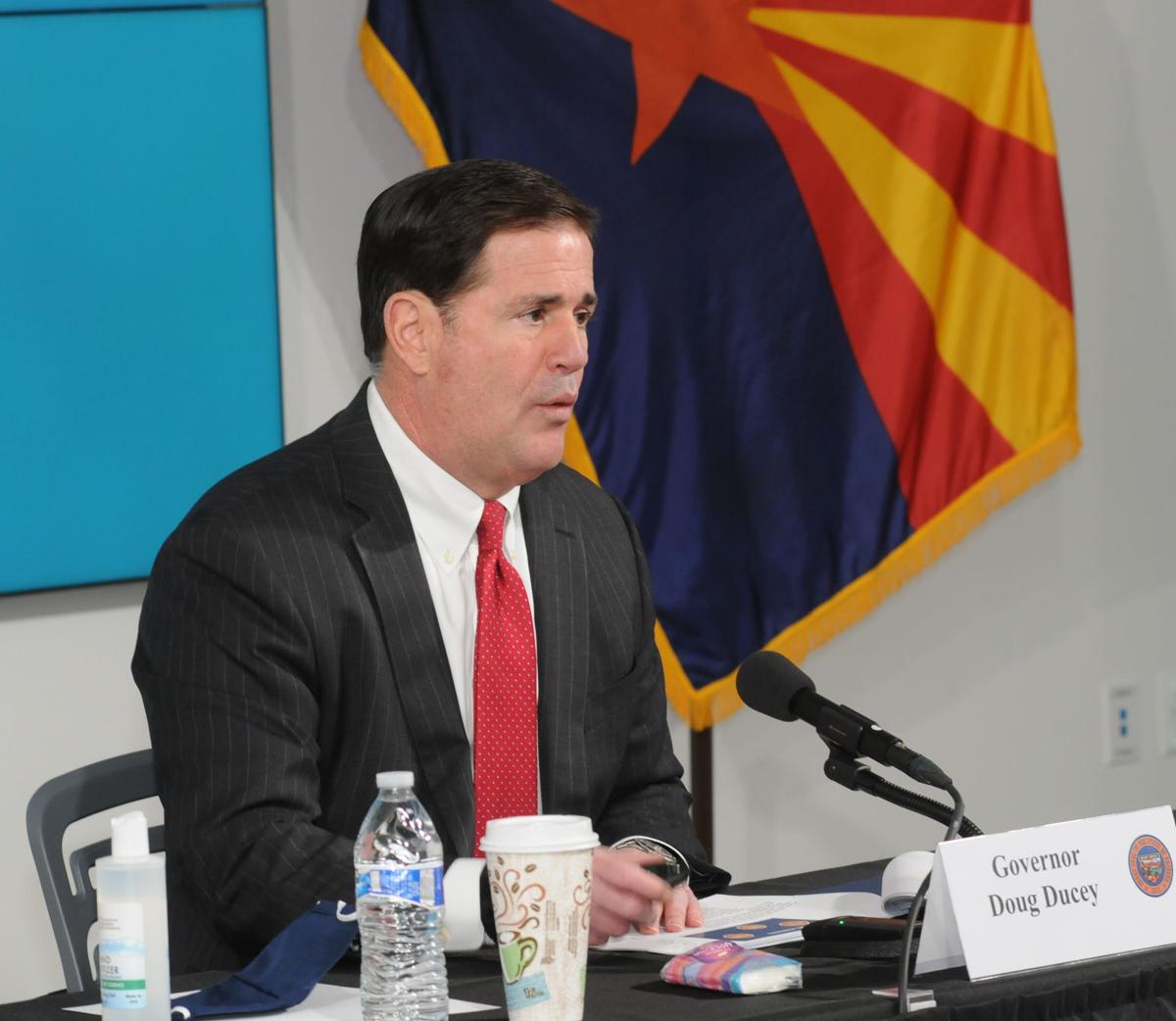PHOENIX — Gov. Doug Ducey said the state won’t make up the money that Arizona’s unemployed will lose when the $600 a week in extra federal benefits dries up this week.
In fact, the governor said he has no interest in raising the state’s own jobless benefits from the current $240 a week, the second-lowest cap in the country. He said that in normal times — meaning before the pandemic — there were plenty of jobs out there for people to find “at any time.”
A more immediate problem faces the approximately 452,000 Arizonans who collected some form of unemployment compensation this past week.
That federal unemployment benefits program expires this week, and Congress has yet to approve either an extension or, if nothing else, some scaled-back plan.
The Department of Economic Security reports that of the Arizonans who received some form of unemployment money, about 255,000 were getting only the Pandemic Unemployment Assistance. That is the $600 a week Congress agreed to provide for individuals who do not qualify for regular state jobless benefits, including the self-employed.
Absent congressional action, they will get nothing this coming week.
The balance are those in the regular state unemployment system. That covers those who, through no fault of their own, became unemployed.
By law, they are entitled to one-half of what they were earning. But state lawmakers, at the behest of the business community, have capped payments at $240 a week, no matter how much the person was earning before, a figure that has not been altered since 2004. Only Mississippi pays less.
With no congressional action, those state unemployment checks of no more than $240 will be all they get.
The governor said that’s not his problem.
“I want to just say as clearly as I can that Congress needs to act,” Ducey said. “This is on Congress.”
Anyway, he said, the state does not have the kind of money it would take to backfill the loss of federal dollars on any sustained basis.
With 452,000 collecting benefits, making up that $600 a week would cost the state more than $270 million a week.
“In Arizona, we live by a balanced budget,” Ducey said. “And we don’t have the ability to print money.”
Borrowing, the governor said, is not an option. That, he said, leaves the issue in the lap of federal lawmakers who have yet to reach a deal.
“If I have any advice for Congress it would be to turn around, order sandwiches in, stay the weekend and figure this out,” he said.
And what of the people who find themselves with only $240 a week going forward — or nothing?
The governor said it’s not that dire.
“We’ve worked very hard to ensure that Arizonans have resources that are necessary and that people are not losing a place where they live or their home,” Ducey said. That refers to programs that for the time being forbid the eviction of tenants affected directly or indirectly by COVID-19 as well as some funds set aside to prevent foreclosure on mortgages.
In the meantime, the governor said he sees no reason to address the issue of unemployment benefits.
“We’re not at that point,” he said.
Any increase in state unemployment benefits would not affect the budget or raise taxes.
Instead, unemployment compensation is financed through a trust fund financed by a tax paid by employers on each worker’s first $7,000 of salary. Rates are based on how often each firm’s workers end up collecting benefits because they have been laid off or fired through no fault of their own.
If the fund gets depleted, then the state automatically raises what employers pay.
Ducey said there’s really no reason to even discuss the issue of that $240 cap.
“It’s a hypothetical question because unemployment wasn’t really an issue before the pandemic,” he said.
Photos: In Tucson, face masks are for more than just people
Face masks on objects
Updated
A Jeep sports with eyes like those from the movie "Cars" sports a COVID19 mask outside Alpha Graphics near the corner of Tanque Verde and Kolb, Tucson, Ariz., July 3, 2020.
Face masks on objects
Updated
The large Tiki head at the entrance of The Hut, 305 N. 4th Ave., wears a mask in response to the Coronavirus Disease (COVID-19) in Tucson, Ariz., on April 5, 2020.
Face masks on objects
Updated
The noted bull testicles on the statue outside Casa Molina at Speedway and Wilmot, usually painted in various schemes and wild colors, are in these CONVID19 times now sporting a face mask, March 27, 2020, Tucson, Ariz.
Face masks on objects
Updated
A dinosaur statue over the doors of MATS Dojo at 5929 E. 22nd St., sports an athletic cup for a face mask in the second week of COVID-19 restrictions, March 31, 2020, Tucson, Ariz.
Face masks on objects
Updated
The venerable T-Rex outside the McDonald's at Grant and Tanque Verde comes around late, but strong, to the mask game, May 13, 2020, Tucson, Ariz.
Face masks on objects
Updated
The iconic Casa Molina bull and matador statue both sported masks on the first full week of the loosening of COVID-19 restrictions in mid-May.
Face masks on objects
Updated
Father Kino's horse practice safe social interaction by wearing a mask even if Father Kino himself isn't. The statue sits at Cherry Fields at 15th Street and Kino Boulevard, Saturday, May 2, 2020, Tucson, Ariz.




